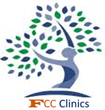LOST SELF: AFTERMATH OF COVID-19
REUNITING WITH LOST SELVES: BACK TO BASIS

Traumas, tragedies and losses are said to be part of the inevitable givens of human existence. For example the COVID-19 and its devastating impact of loss of jobs, health, self, freedom, or life. How we respond to such traumas, tragedies and losses can predict the outcome we get from the situation. Our ability to respond one way or the other is often underpinned by a number of factors e.g. the resources we have at our disposal and how we have used these resources to build or protect who we are (our ‘selves’)
From interactional perspective, human self can be categorized into three main dimensions:
1.the social (interpersonal) self: known to others
2.the private (intra-personal) self: known to self
3.the unknown self: unknown to self and others (other selves)
The focus here is on the first two (known) selves because these are within our grasp and can help in unveiling the third dimension of self (the unknown self).
SOCIAL SELF: Supersized!
The social self is the self that you share with other ‘selves’. It emphasizes the DOING /ACTOR) side of self. In spirit of our modernization and actualization, sense of self have gradually but surely been immensely shaped and described in terms of lifestyle; job titles, social circles, attainments etc. This means that we have become more socially aware and connected than we may want to acknowledge or face. Our social self has become so super overrated. People have openly asserted that social connection/interaction is key to our mental well-being. As far as this is correct, it is only half true. We tend to be happier when we are in the midst of people who share common interests in hobbies, work, social spots/media, ideological trends and value sets. Our community spirit is in its most record high; the more we are at the centre of the social action, the better valued we feel. The psychological basis for building our sense of self heavily on our social self could be because it often provides us some excitement, tends to serve our ego, and enhance other ‘selves’ view of us.
In crisis situation (e.g. COVID-19, and Lock-down), our socially constructed self tend to be put to test and forces us to reevaluate our self-formation and its effectiveness. In crisis situation like this, if the private self of an individual is not very well nurtured, the individual tends to experience the impact of the isolation, or 'aloneness' more. Consequently, such individuals tend to be more prone to experiencing mental health difficulties than their counterparts.
PRIVATE SELF: Room 4 Growth
The private self represents the self that only you can relate to and with. It emphasizes the BEING side of self. In a society like ours where the social-laden sense of self is promoted for a long time, our private self and its contributing values are often ignored or not given its due recognition. We are usually reluctant to relate with our private and emotive self because we have been cultured to see this dimension of self as weak, disgraceful, uncomfortable, babyish etc. Tons of studies have, however, shown that the more you are able to relate and express your emotive and private self, the better you are able to prevent mental breakdown, heal from traumas and develop to deeper height in self. While it is important to stay socially connected and continue to foster our social self, it is of utmost importance that the private self is nurtured as well. I would assert that for a healthier mental well-being, there is a need for us to consciously nurture and connect with both our private and social self.
Private self has qualities that help us relate with self and other
selves in our shared space. Dealing with crisis and uncertainty, the following internal
qualities are essential for survival:
1. Resilience : #courage, #endurance, #perseverance, #determination, #willpower, #motivation, #coping, #flexibility/#responsive to change, #doing better than you think . Resilience is the ability to adapt well in the face of adversity, threat, tragedies and traumas. It is the internal resistance that keeps you buoyant in the face of thrusting forces of life. This is therefore an outward facing quality which helps you to perform and hold forth your social self better. It is the internal driving force that helps you not to give up in the face of adversity, traumas and loss.
2. Compassion for self: #care, #empathy, #patience, #kindness, #gentleness, #enabled to flourish/ to be happy, #nurture to self. This quality is inward facing; it helps you to acknowledge that you matter and should be counted, protected and valued. In times of trauma and tragedies, it provides you the soothing care that you need. It becomes your own best friend when all friends are gone or unreachable.
3. Acceptance of situation/help: #fallibility of human nature, #letting go, #beyond control . This is the quality that balances the resilience and compassion.It helps you know when to fight and when to flee, when to hold on and when to let go. This quality helps you change what you can as well as acknowledge that some things cannot be changed and should be accepted as they are. It also helps accept that others may be able to help you better than you can help your self.
As a society, we need to return to the basis and begin to
emphasize these great contributing factors to mental health. These can be the deciding
factors whether we stay mentally well or challenged. These internal qualities of private self are emphasized within the third wave
Cognitive Behavioural Therapies (CBT) such as:
·Acceptance and Commitment Therapy [ACT],
·Compassion-Focused Therapy [CFT] and
·Mindfulness-based Cognitive Behavioural Therapy [MCBT],
During therapy, clients are usually helped to learn how to develop and/or enhance these qualities in their everyday lives.
OUR MODEL OF THERAPY
In FCC, we use the KRAFT
Model
to help our clients.
- K = Kindness to self and others
- R = Reach-out to / Receive help from others
- A = Awareness of : where you are, what you can change, what you need to accept, and that you are not alone in the situation
- F = Focus on : physical and mental; personal and social well-being/fitness
- T = Thinking pattern modification
For professional help on your journey to reuniting your lost self, please contact us at dr.oby@fcc-clinics.com / www.fcc-clinics.com
We welcome questions, and/or contributions.
Stay Safe and Psychologically Connected
Dr.Oby@FCC Clinics - Global Health














